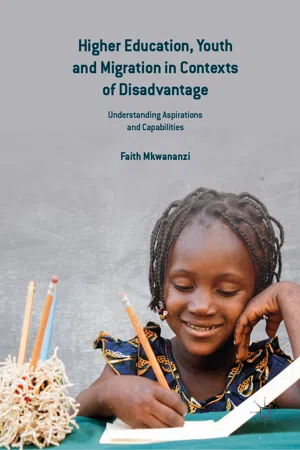Introduction
The United Nations High Commissioner for Refugees (UNHCR) 2018 figures show that an average of one person every two seconds is forcibly displaced from their home across the world. As at the end of 2017, this displacement was at a record high of 68.5 million, with 25.4 million being refugees escaping political, economic, social and other instabilities from their countries (UNHCR, 2018). The refugee figure was 2.9 million more than in 2016, the biggest increase witnessed by the agency in a single year (UNHCR, 2018), making the global refugee trends more concerning than ever (Edwards, 2018). The intensity of this is seen in recent migrations to the Global North, particularly the movement of refugees to Europe between 2015 and 2016. According to UNHCR (2018), this is evidenced by a backlog in asylum applications gradually processed in 2017. In particular, the refugee population in Germany increased by 45%, with over half a million decisions made by the end of 2017 (ibid.). At the end of the same year, Turkey hosted the largest number of refugees (3.5 million), while other countries on the European continent hosted 2.6 million. In the Asia-Pacific region, the refugee population increased by 21% between 2016 and 2017, totalling 4.2 million as of December 2017 (UNHCR, 2018). While this European refugee landscape brings a new perspective to global migration trends in that region, Africa is also experiencing similar migratory patterns. The number of refugees in the Middle East and North Africa was at 2.7 million by end-2017, with the refugee population in sub-Saharan Africa increasing to a total 6.3 million, making the region host almost one-third of the world’s refugee population (UNHCR, 2018: 13), thus making migration within the Global South as significant as migration to the Global North. This intensified migration in Africa is as a result of political, economic and social instability in countries such as Sudan, Democratic Republic of Congo and Zimbabwe, among others (Stewart, 2002).
At play in this migration landscape is a shift in the gender and age characteristics of migrants and refugees, with an increase in the number of women and children (Birchall, 2016). While in 2017 women and men were almost equally represented, in Africa 51% of the refugee population was female, compared to 39% in Europe (UNHCR, 2018: 60). Furthermore, among those migrating are youth in search of alternative livelihoods and opportunities in employment, among other factors. In 2017, for children under the age of 18, Africa had the highest proportion, with 59% of the population (UNHCR, 2018: 60), with many of these children in sub-Saharan Africa. This changing profile was noted in the context of Zimbabwe in which Crush, Chikanda, and Tawodzera (2012) separate the migration into three waves. The first wave was in the 1990s, followed by the second around the 2000s and the third from 2005. The third wave is characterised by more female migrants and more young emigrants aged 15–24 years, increasing from 15 to 31% of the migrants between 2005 and 2010. These migration statistics are not only a reflection of a younger population structure within the region, but also reflect a number of developmental implications. One of the issues of concern is youth and higher education (HE), yet there has not been an in-depth focus on this dimension of migration in the South-to-South 1 migrational context. This is despite the estimation that South-to-South migration is nearly as large as South-to-North migration, with an HE qualification having the potentially of equipping these youths for multiple futures they face.
The purpose of this book is to engage in issues of higher education 2 within a continually changing migration landscape in the Global South, particularly in Southern Africa. Using a case study based in Johannesburg, the book explores the lives, experiences and the formation of higher educational aspirations among marginalised 3 migrant youth, thereby demonstrating the reality faced by these young people in the context of migration to the Global South. While the focus of the case study is on Zimbabwean youth who have migrated to South Africa, it provides a lens on migration in the Southern African region. Within the complexity of the ever-changing global and African migratory landscape, this book will focus on the desire for higher education continuation among the youth who often migrate under unfavourable conditions. Drawing on detailed narratives of the youths, the book helps us to understand the conditions under which aspirations for higher education are or are not developed. Grounded on the human development informed capabilities approach (CA), I provide a fourfold conceptualisation of HE aspirations formulation. The use of the CA allows for the address of the complex and diverse nature of migration and provides a basis for the evaluation and analysis of the lives lived by migrant youth and how these experiences influence their educational aspirations. What is also pivotal in using the CA is that it shifts the traditional focus on migration from being monetary related to understanding that the quality of life enjoyed by migrants is not only about their achievements, but the freedoms (options) available to them to pursue and achieve the things tha...
